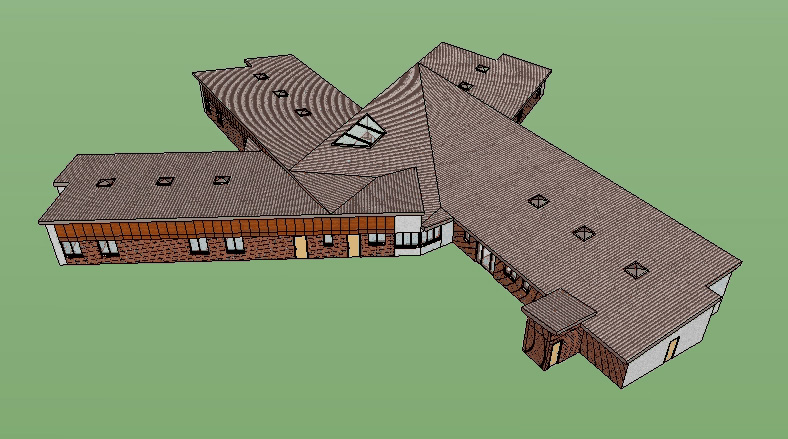Moire patterns in animation?
-
Hi,
Do you know how to get rid of moire patterns in animations?
I have attached a single frame from an animation I have produced.
The roof shows the awful moire pattern effect that occurs.
Its bad enough on a still, but it completely distracts you when viewing the animation.
Any ideas or advice for a cure?Thanks
Mr S----------

-
Im certainly no expert on this, but i think moire has a lot to do with the resolution of the iamge and the resolution of your screen.
Because of this i think it can be fixed to an extent by exporting the image/animation very large and then scaling it down to the size you need.
-
it has to do with repeating patterns, as you know. i have never been able to get rid of it, even with higher resolution.
-
I never got rid of these unpleasant effects either.
you could try to enlarge the texture. you may loose proper scale of the roof tiling, but perhaps it helps you to get rid of the moire effect. I think the only other option is to live with it. the question is, what is the lesser evil

-
Yes, I have often used the "render large than reduce in Photoshop" method for still images, but I was hoping there was a better solution for animation.
Do third-party renderers cure this problem?
Regards
Mr S
-
There are a number of things that affect the infamous moire pattern - image size, the texture in question, resolution/quality settings, and your graphics card.
-
Hi,
I have managed to minimize the effect but not remove it completely.
Make sure you render the animation without any compression.
Choose the "Full Frames (Uncompressed)" option in the animation dialog box.
Then render the output file in the video editor of your choice to a Wimdows Media Video file.
The result I got was far better than trying to render from within SketchUp using the Cinepak codec.Hope this helps others.
Regards
Mr S
-
does sketchup filter repeating textures that converge in the distance? it seems to happen when you get a lot of high contrast parallel lines in a small space, regardless of your settings

-
The problem is that SketchUp isnt very good at antialiasing/filtering.

-
What about using a sketchy material for the roof and bricks?
If I remember correctly, there are some to be found in the materials forum here. -
Nothing new, but more of a reitteration based on my findings which have mainly been w/ the brick textures.
Image resolution does help but it seems to be on a decreasing scale. So rendering small images will make the affect horrible. If you do images about the size of your monitor it'll be quite a bit better. But after you get past about 2000 pixels in either width or height it doesn't seem to make as much difference.
The biggest difference comes from changing the scale. Make the scale as large as you can without making it so big it's obvious the scale is way off. This is also a much better option for animations since you don't want to just try and solve the problem by making ginormous image files.
I haven't really tested it much but it seems logical that you'd want to use .png or tiff files since they aren't compressed like a jpg.
I usually combine all of these things. Scale the texture up, have SU render a bunch of png files at 29.97 fps at a nice big size (twice the size I'll end up with is pretty ideal), then use Adobe Premiere Elements 4.0 to put them into an animation.
-Brodie
Advertisement







